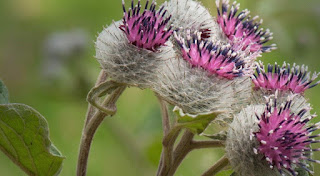The period of pregnancy and breastfeeding is a special time in a woman's life and to protect herself and her baby should be very careful what you assume to prevent the dangers.
In fact, many drugs and many plants have active ingredients that pass from the mother's body to the baby through the placenta and can cause interference of the development or cause problems for the unborn child.
Also breastfeeding substances taken by the mother, although natural, can pass into breast milk, so you should pay attention at this particular time, while avoiding potentially harmful plants and herbs.
The currently most at risk is always the first trimester of pregnancy where it is recommended to avoid any remedy, both pharmaceutical and natural not to interfere in any way with the development of the fetus, since the risk is the influence of substances that can lead to malformations or damage the physiological functions of the unborn child.
After the first quarter, if you develop disorders such as insomnia, you should use herbs for short periods and always under medical supervision.
For the typical discomforts of pregnancy, such as constipation, some natural remedy can be helpful. In the case of constipation, for example, caused by the growing baby in the mother's belly squeezing gut and making it more difficult emptying of stool, usually resort to natural remedies such as laxatives and purgatives, but in pregnancy are considered dangerous because they can cause contractions and spasms that may lead to abortion or to an advance of the birth.
Among the herbs to avoid so there are frangula, rhubarb, senna, cascara and aloe containing anthraquinones.
Aloe contains aloin, the active ingredient in laxative purgative, although you can use it in the form of preparations in aloe vera gel, where this substance is removed.
Other plants to avoid are the devil's claw, hypericum, willow, ginkgo, ginseng, fucus, feverfew and uncaria - some of these causes a stimulation of uterine contractions, while others are blood thinners or serve to slimming, not recommended because the mother has to gain weight.
Many plants containing essential oils, such as mint, bitter orange and fennel, are excluded because they are too concentrated - in fact, it runs the risk of triggering allergies or activate the predisposition in the child's growth.
Even foods and common plants such as sage, garlic, artichoke, liquorice are to avoid or control the use in pregnancy.
During lactation some natural remedies can pass into breast milk, sometimes changing only the flavor, sometimes bringing with them the active ingredients and substances that are not suited to the newborn.
During lactation should be avoided plants like sage and artichoke, or slow down the production of breast milk; They could instead come in handy at the end of breastfeeding to stop lactation.
As remedies to help lactation are used herbs such as fennel which however should only be used as a herbal tea, because it contains essential oils and substances that in another format can be found in high concentration, and as mentioned above, can disturb both in pregnancy, and in breastfeeding.




Comments
Post a Comment